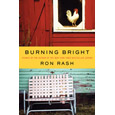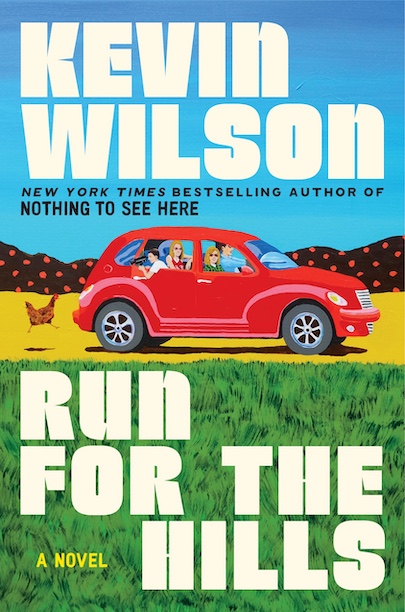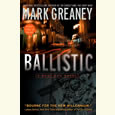After Tragedy
Two men’s lives are forever changed in Steve Yarbrough’s The Unmade World
The paths of two very different men intersect, purely by chance, and both their lives are changed forever. That’s the premise of Steve Yarbrough’s The Unmade World, a story of entwined fates that becomes a meditation on guilt, innocence, and ordinary injustice. It’s also a story about how we seek meaning even in the face of life’s most baffling cruelties.
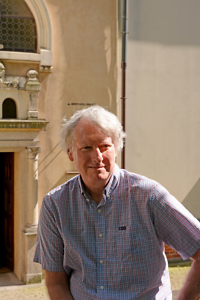 Richard Brennan is an American journalist married to a Polish woman, Julia. The family, which includes a teenage daughter named Anna, divides its time between Fresno, California, and Krakow. We meet them in Krakow in 2006 as Christmas approaches. Father and daughter are decorating the tree when Julia enters, annoyed that they’ve failed to get ready for a dinner out with her brother and sister-in-law. “You two are both hopeless,” she tells them, and we get the sense that this is her favorite, fond complaint about her spouse and offspring.
Richard Brennan is an American journalist married to a Polish woman, Julia. The family, which includes a teenage daughter named Anna, divides its time between Fresno, California, and Krakow. We meet them in Krakow in 2006 as Christmas approaches. Father and daughter are decorating the tree when Julia enters, annoyed that they’ve failed to get ready for a dinner out with her brother and sister-in-law. “You two are both hopeless,” she tells them, and we get the sense that this is her favorite, fond complaint about her spouse and offspring.
Having grown up in grim communist Poland, Julia is a smart, fierce woman who doesn’t suffer fools and has “a particular way her mouth twists when she thinks you’re full of shit.” Anna, while something of a daddy’s girl, shares her mother’s directness. She’s quick to tell her chunky dad to “take it easy on the pierogi.” Life with these two scrappy women is clearly to Richard’s liking, and as they drive through the snow to the delayed dinner, the trio is the picture of a happy family in a renewed country, where a “pseudo-Alpine castle” that once housed vacationing Luftwaffe pilots has become a popular Kurdish-owned restaurant with an affluent international clientele.
Meanwhile, elsewhere in Krakow, Bogdan Baranowski is contemplating his failing grocery business—and, along with his hapless partner, Marek—planning to save it by stealing a large amount of cash. Bogdan and Marek are among the unlucky souls who’ve been run down by the freight train of capitalist progress. They’d hoped to defeat the large Western supermarket chains by taking over old state-owned stores, providing local products at low prices and retaining the longtime employees. Instead, they find themselves saddled with a corrupt supply system and workers who simply can’t understand that cheating customers is no longer acceptable in the newly competitive marketplace. “If you’ve lived your whole life upside down,” Bogdan thinks, “living right-side up is like walking on the ceiling.”
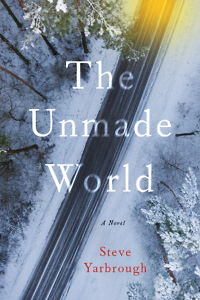 Bogdan is no villain. In fact, he’s a sweet soul, the type of guy who worries about hurting the guard dog he and Marek must get past to commit the planned burglary. But the shame of failure haunts him, and he’s desperate to protect himself from the assessment he sees in his wife’s gaze: “It’s not distaste, it’s not disappointment, it isn’t even pity. It’s astonishment. How can someone who used to do so many things so well suddenly become incapable of doing even one thing right?”
Bogdan is no villain. In fact, he’s a sweet soul, the type of guy who worries about hurting the guard dog he and Marek must get past to commit the planned burglary. But the shame of failure haunts him, and he’s desperate to protect himself from the assessment he sees in his wife’s gaze: “It’s not distaste, it’s not disappointment, it isn’t even pity. It’s astonishment. How can someone who used to do so many things so well suddenly become incapable of doing even one thing right?”
Her judgment, as it turns out, is not far wrong. The ill-planned burglary leads to a devastating encounter between unlucky Bogdan and the happy Brennan family that no one could have foreseen. It’s the kind of tragedy that has no real survivors, insofar as none of them can recover the kind of full life that was possible before it happened. But the world has a way of pulling people forward in spite of even the deepest sorrow, and The Unmade World follows Richard and Bogdan as they struggle with the measure of life available to each of them in the years after the fateful night in Krakow.
Yarbrough has a keen eye for the subtle and not-so-subtle inequities that shape every human encounter, and although there’s not a whiff of the polemical about The Unmade World, its vision of the privilege gap between Richard, the comparatively successful American journalist, and Bogdan, a penniless Pole who’s at the mercy of both relentless capitalism and state bureaucracy, is very clear. As he tries to re-engage with his career, Richard is tormented about whether he’s up to pursuing the kind of hard-hitting investigative reporting he once did, but Bogdan never has the luxury of such high-mindedness or concerns about principle. He just has to survive. At the same time, his powerlessness makes his road to redemption a little simpler, a little more clear-cut, than anything available to Richard.
Much of the strength and beauty of this novel lies in Yarbrough’s sympathetic depiction of his two protagonists—both men are wholly believable, complex individuals, the kind of fully realized characters who stay with you long after you’ve turned the last page. But there are other pleasures here as well: vivid portraits of sunny, hot Fresno and the somber beauty of Krakow, a suspenseful subplot involving a horrific mass murder, and a cast of engaging secondary characters who make the world of the novel as rich as reality.

Maria Browning is a fifth-generation Tennessean who grew up in Erin and Nashville. She’s the managing editor of Chapter 16 and currently lives in White Bluff.
